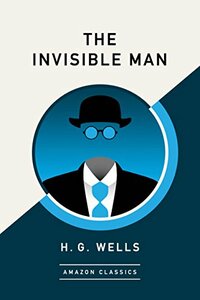Take a photo of a barcode or cover
dark
mysterious
tense
medium-paced
Plot or Character Driven:
Character
Strong character development:
No
Loveable characters:
Complicated
Diverse cast of characters:
No
Flaws of characters a main focus:
Yes
slow-paced
dark
mysterious
tense
medium-paced
Plot or Character Driven:
Character
Strong character development:
No
Loveable characters:
No
Diverse cast of characters:
N/A
Flaws of characters a main focus:
Yes
adventurous
dark
mysterious
medium-paced
adventurous
dark
mysterious
medium-paced
Plot or Character Driven:
Character
Strong character development:
No
Loveable characters:
No
Diverse cast of characters:
No
Flaws of characters a main focus:
Yes
adventurous
mysterious
sad
tense
medium-paced
Plot or Character Driven:
A mix
Strong character development:
No
Loveable characters:
No
Diverse cast of characters:
No
Flaws of characters a main focus:
Yes
adventurous
dark
mysterious
tense
medium-paced
Plot or Character Driven:
Plot
Strong character development:
Yes
Loveable characters:
No
Diverse cast of characters:
No
Flaws of characters a main focus:
Yes
adventurous
dark
mysterious
medium-paced
Plot or Character Driven:
Plot
Strong character development:
Yes
Loveable characters:
Complicated
Diverse cast of characters:
Yes
Flaws of characters a main focus:
Yes
“I beheld, unclouded by doubt, a magnificent vision of all that invisibility might mean to a man—the mystery, the power, the freedom.”
H.G. Wells’ "The Invisible Man" remains one of the most chilling and provocative works in the canon of early science fiction. Though often remembered for its central gimmick, a man who renders himself unseen, it is in fact a deeply political and psychological novel, one that probes the consequences of scientific power unmoored from morality. Wells, never shy about his ideological leanings, uses Griffin’s descent into madness not just to tell a story of terror, but to mount a critique of the democratic ideals he found shallow and misguided.
H.G. Wells’ "The Invisible Man" remains one of the most chilling and provocative works in the canon of early science fiction. Though often remembered for its central gimmick, a man who renders himself unseen, it is in fact a deeply political and psychological novel, one that probes the consequences of scientific power unmoored from morality. Wells, never shy about his ideological leanings, uses Griffin’s descent into madness not just to tell a story of terror, but to mount a critique of the democratic ideals he found shallow and misguided.
Griffin is not a tragic hero undone by a noble experiment gone wrong; he is a misanthrope from the start. Wells presents him as a man who has always viewed himself as intellectually superior, impatient with the ordinary rules that bind lesser minds. When Griffin becomes invisible, he doesn’t lose his humanity—he sheds it like a burden. No longer visible, he believes himself untouchable, free to rule rather than participate in society. The result is a terrifying study in how power, when given to those who reject communal responsibility, can curdle into nihilism.
It’s no accident that the novel’s more “ordinary” characters are shown as ineffectual, small-minded, or cowardly. Wells, himself a socialist with complex and sometimes troublingly extreme views, seems to hold the masses in low regard. His disdain for democracy flickers in the chaotic, often comic way the public reacts to Griffin's reign of terror. The law is slow. The people are confused. Justice is reactive, not preventive. And in that gap, a tyrant flourishes.
For all its weighty themes, the book is also a propulsive and enjoyable read, with tight pacing, atmospheric dread, and scenes of genuine suspense. Wells understood how to couch philosophy in narrative, and "The Invisible Man" is a prime example of that talent.
And yes, I absolutely love the original 1933 film adaptation with Claude Rains. With his sonorous voice and theatrical presence, Rains brought a new dimension to Griffin: charming, cruel, magnetic, and unhinged. The film streamlines the story while preserving its core themes, and Rains’ performance makes invisibility feel as eerie and captivating as it did on the page.
"The Invisible Man" is more than a tale of science gone awry. It’s a dark mirror held up to individualism run amok, a warning that brilliance without empathy is not genius, it’s danger.
adventurous
dark
informative
mysterious
tense
medium-paced
Plot or Character Driven:
A mix
Strong character development:
Complicated
Loveable characters:
Complicated
Diverse cast of characters:
Yes
Flaws of characters a main focus:
N/A
The tension is topnotch on this one and the thrill of how this ended is so goood. Kept me in the edge of my seat.
adventurous
dark
mysterious
medium-paced
Plot or Character Driven:
Character
Strong character development:
Yes
Loveable characters:
Complicated
Diverse cast of characters:
No
Flaws of characters a main focus:
Yes




